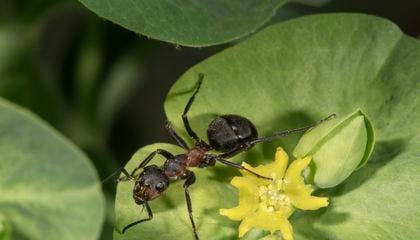Scientists and chefs have collaborated to produce yogurt from ants, reviving an ancient Bulgarian fermentation technique. This innovative project aims not only to explore unconventional food sources but also to highlight the nutritional benefits of insects. The team, which includes experts in microbiology and culinary arts, believes this unique approach could pave the way for sustainable food practices.
Fermentation has long been a method for preserving food and enhancing flavors. The specific technique applied in this project draws from traditional Bulgarian practices, which have been passed down through generations. By utilizing ants in the fermentation process, the team is tapping into both cultural heritage and modern dietary needs.
Embracing Sustainable Nutrition
Insects are recognized for their high protein content and essential nutrients. According to the Food and Agriculture Organization (FAO), insects could provide a sustainable alternative to traditional livestock. The use of ants in yogurt not only aligns with this vision but also offers a novel taste experience. The project is designed to appeal to adventurous consumers seeking diverse dietary options.
The research team conducted extensive trials to perfect the fermentation process. They observed how different species of ants affected the flavor, texture, and nutritional profile of the yogurt. The results indicated that certain ant species enhanced the probiotic qualities of the final product, making it potentially beneficial for gut health.
Future of Food Innovation
This venture could influence the future of food production, especially in a world increasingly focused on sustainability. As concerns grow over the environmental impact of traditional farming, alternative protein sources like insects are gaining traction. The project not only highlights the versatility of ants but also serves as a reminder of the importance of preserving traditional food practices.
The collaboration between scientists and chefs exemplifies how interdisciplinary efforts can lead to groundbreaking innovations. The team plans to present their findings and the resulting yogurt at food expos throughout 2024, aiming to inspire both consumers and producers. As the project progresses, the team hopes to educate the public on the viability of insect-based foods, making them a staple in modern diets.
Through this initiative, the team is not only reviving a traditional method but also opening doors to a new culinary frontier. The combination of science and culinary art in creating ant yogurt represents a significant step toward embracing a future where diverse and sustainable food sources are commonplace.








































































